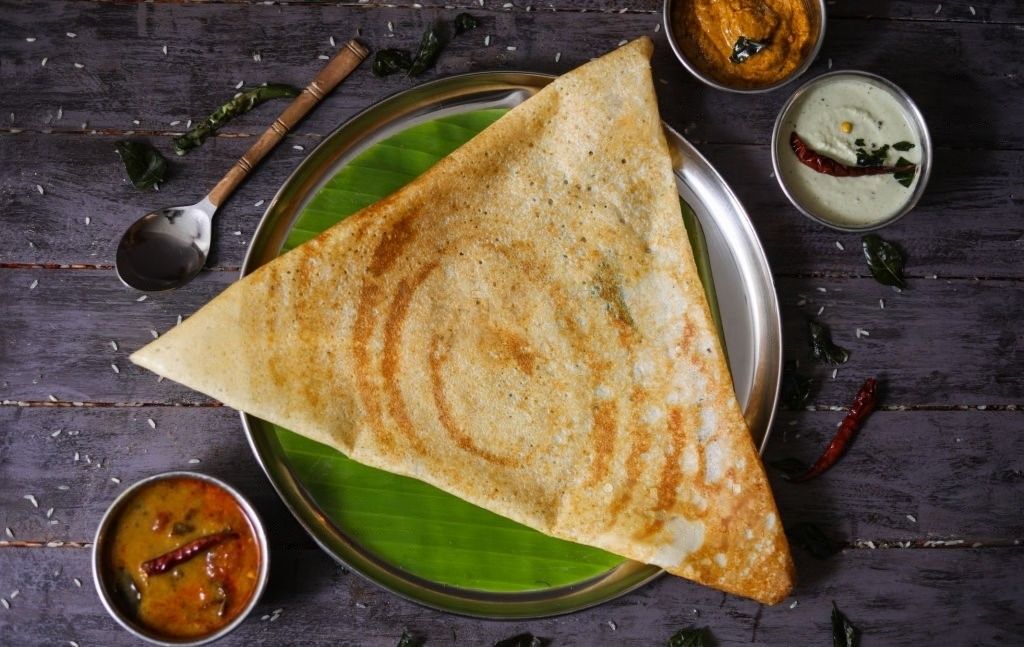Fermented Foods and Women's Health: A Look at the Benefits of Probiotics
The traditional fermented foods found in Indian cuisine not only bring rich flavors but also offer a natural supply of probiotics, which can contribute to better gut health, stronger immunity, and improved reproductive well-being.

Indian cuisine is rich in flavors and diverse in ingredients, offering a wide range of traditional fermented foods. Fermented foods have been a part of Indian culinary traditions for centuries and are known for their unique tastes and health benefits. One of the key reasons behind the popularity of these fermented delicacies is their high probiotic content. Probiotics are beneficial bacteria that offer numerous advantages for women's health. In this article, we will explore the scientific research surrounding the benefits of probiotics found in fermented foods and their impact on Indian women's health.
1.The Importance of Probiotics for Gut Health
Probiotics play a crucial role in maintaining a healthy gut microbiome, which is essential for optimal digestive health. These beneficial bacteria help in the breakdown and absorption of nutrients, support immune function, and contribute to overall well-being.
2. Probiotics and Immune Support
A strong immune system is vital for overall health, and probiotics can play a role in supporting immune function. Research suggests that probiotics can enhance immune responses, reduce the risk of respiratory tract infections, and modulate immune activity.
3. Probiotics and Women's Reproductive Health
Probiotics can have a positive impact on women's reproductive health by supporting a healthy vaginal microbiome. Imbalances in vaginal flora can lead to conditions such as bacterial vaginosis and yeast infections. Probiotics help restore and maintain a healthy vaginal ecosystem by promoting the growth of beneficial bacteria and inhibiting the overgrowth of harmful pathogens.
Examples of Fermented Foods with Probiotics in Indian Cuisine:
1.Curd (Yogurt): Curd is a staple in Indian households and is made by fermenting milk with beneficial bacteria. It is a rich source of probiotics, providing Lactobacillus and Bifidobacterium strains that support gut health.
2. Kanji: Kanji is a popular fermented beverage made from black carrots and mustard seeds. It is traditionally consumed during festivals and is known for its probiotic content.
3. Dhokla: Dhokla is a fermented snack made from fermented chickpea flour and spices. It is a common delicacy in Gujarat and contains beneficial bacteria due to the fermentation process.
4. Idli and Dosa: Idli and dosa are South Indian dishes made from fermented rice and lentil batter. The fermentation process not only enhances the taste but also increases the probiotic content.
SUMMARY
Fermented foods are an integral part of Indian cuisine and offer numerous health benefits, particularly for women. The probiotics found in fermented foods can support digestive health, strengthen the immune system, and contribute to optimal reproductive health. Incorporating fermented foods like curd, kanji and dhokla into the diet can provide a natural source of probiotics for Indian women.
Incorporating fermented foods into your daily meals can be a delicious and nutritious way to support your overall health. The traditional fermented foods of Indian cuisine not only add depth of flavor but also provide a natural source of probiotics that contribute to improved gut health, strengthened immunity, and enhanced reproductive health.
Jayti Shah is a Clinical Nutritionist with a master's degree in Clinical Nutrition and Dietetics. She is a member of the Indian Dietetic Association (IDA). Over the last 9 years, she has helped 400 clients in their clinical and weight loss journeys. She works with SocialBoat as a nutrition consultant.
At SocialBoat, we offer custom diet plans and guided workouts to help you achieve your goals in a 360-degree approach. Our gamified experience ensures that you don’t find workouts boring and we reward you for being consistent with your efforts.

REFERENCES
- Gupta VK, et al. Effect of probiotic yogurt containing Lactobacillus acidophilus and Bifidobacterium lactis on lipid profile in individuals with type 2 diabetes mellitus. J Am Coll Nutr. 2012;31(5):363-369.
- Gupta P, et al. Randomized clinical trial of probiotic yogurt as a prophylactic adjuvant to standard treatment in surgical patients. J Surg Res. 2013;184(1):286-292.
- Parvaneh K, et al. Effects of probiotics on the recurrence of bacterial vaginosis: A review. J Low Genit Tract Dis. 2014;18(1):79-86.
- Agarwal KN, et al. Effect of long term ingestion of probiotic-fermented foods and/or probiotic supplements in Indian women with PCOS on endocrine outcomes and biomarkers of inflammation and oxidative stress: A randomised clinical trial. Nutrition. 2020;77:110845.
- Verna EC, Lucak S. Use of probiotics in gastrointestinal disorders: What to recommend? Therap Adv Gastroenterol. 2010;3(5):307-319.
- Yadav S, et al. Efficacy of vaginal tablets containing lactobacilli versus pH tablets on vaginal health and inflammatory cytokines: A randomized, double-blind study. J Obstet Gynaecol India. 2020;70(6):446-451.
- Deepak V, et al. Butyrate-producing bacteria supplemented in vitro to Crohn's disease patient microbiota increased butyrate production and enhanced intestinal epithelial barrier integrity. Inflamm Bowel Dis. 2017;23(6):928-936.
